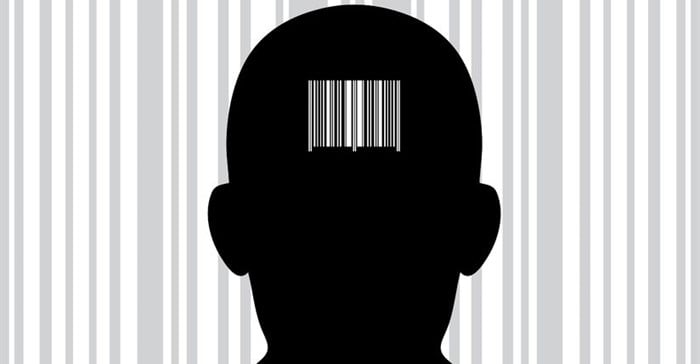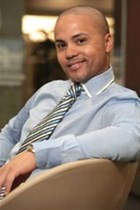Tom Peters is famous for saying "All of us need to understand the importance of branding. We are CEOs of our own companies: Me Inc. To be in business today, our most important job is to be head marketer for the brand called You."
The time for marketers to start working on their professional development and personal brands had never been more important than now.
Investing time into building your professional brand
One of the things that stood out for me recently when interacting with some of the most brilliant marketers at a conference I presented at, was the extent to which few of them invested in building their own professional brands. It seems almost ironic that people who are so adept with the nuts and bolts of brand building would take so little time to apply the same principles to their own professional career development.
Why was that, I asked myself. Could it be because in a world of increasing demands, reducing capacity and budget, marketers get so caught up in the day to day that their own development becomes a secondary priority? Or could it be a general lack of internal marketing capability? Because in today’s time, very few companies have the luxury of internal marketing departments or resources for marketing professional development, which increases the need for us to share amongst each other. Either way, marketing professionals in South Africa could definitely use some upliftment and inspiration. Not sharing our stories, successes and failures is the opportunity cost of building great role models for other would-be marketers to aspire towards.
Principles of brand building applied in a professional context
The principles of building a brand within an organisation and building a professional brand are not too different. Without getting too theoretical, a brand can simply be described as ‘what your customers think about you’. As marketers we have both internal and external customers. Externally, nobody would question our role in connecting to the customer to the organisation. But what about internally? Taking control of our internal brand means changing perception of marketing within our respective organisations from being a cost centre into a centre responsible for business growth and revenue.
In branding terms, we talk about the brand personality and tone and as professionals we are not exempt from these theories. How we show up as professionals within our organisations, the industry and how the marketing profession shows up as a whole has a material impact on how our professional brands are perceived.
We need to think of ourselves as a brand and not a commodity i.e. the value and premium that our organisations and the market would be prepared to pay for the value we hold. That is ultimately the difference between a brand and a commodity. Why would people be prepared to pay a premium for you? Your experience, your knowledge, your attitude or the combination of the above?
Brand storytelling
Great brands tell great stories and they sell a need. For example, the Microsoft story is about empowerment (not cloud or software), Volvo sells safety (not cars), Coca-Cola sells happiness (not soft drinks). As marketers we also need to be crisp about what our story is on our contribution towards business. But on a personal note we should not be afraid to market the stories of our individual journeys. Your story is also what people will believe about you based on the signals your brand sends. Your story is a complete picture made up of facts, feelings and interpretations, and a large part of your story isn’t even told by you.
Brand differentiation and recall
Brands are differentiated and unique. Managing a personal brand is no different. The characteristics that make you unique will enable people to recall who you are and what you have to offer. In the differentiation of your professional brand establish the VPs - vision, purpose, value and promise. This means that marketers should have a vision statement for your career, establish a purpose in your role and what the values are that you will uphold in attaining this. And lastly, the unique promise to your customer and yourself.
Eliminating the ‘F’ word
Eliminate fear of failure or the temptation to be fake. Be authentic. What do Richard Branson, Colonel Sanders, Katy Perry all have in common? Richard Branson failed many times before he succeeded. Sanders walked door to door in many homes and was rejected time and time again before he started selling his now-famous recipe. Katy Perry, now one of the most successful entertainers of all time, was once dumped by her record label. The thing that these people all had in common are that they demonstrated a fearlessness in the face of failure, they refused to give up and they were authentic.
Working on your online profile
The reality is that we exist in dual lives, a physical life and an online life. Ask yourself whether Bing or Google searches know you exist and what the search results will say. What is the first impression you want people to get about you? Your online story should be clear, consistent and constant across all of your social media channels. My social media accounts are a combination or my professional skill and ability as well as my passions and story. The reality is that a future employer will look to the internet and social media to find out information before making a hiring decision. Working on your online profile will also make you easily discoverable to your prospective future employer.
Where to start?
Take the time to invest in your professional brand. Take the theories on branding like value, differentiation, vision, purpose and apply it in a professional context. Work on your professional brand story, particularly that thing that makes you unique and it will assist with your brand recall. Remember that you need to relay all of this information online, too. Work on your online profile and make sure that your storyline is crisp, clear and consistent. Sometimes it might be a work in progress, but eliminate the ‘F’ word and refine your brand story until you have it bedded down. But take the time to develop yourself professionally and share your journey with others. Last but not least, in the words of Oscar Wilde: “Be yourself, as everyone else is already taken”.


































